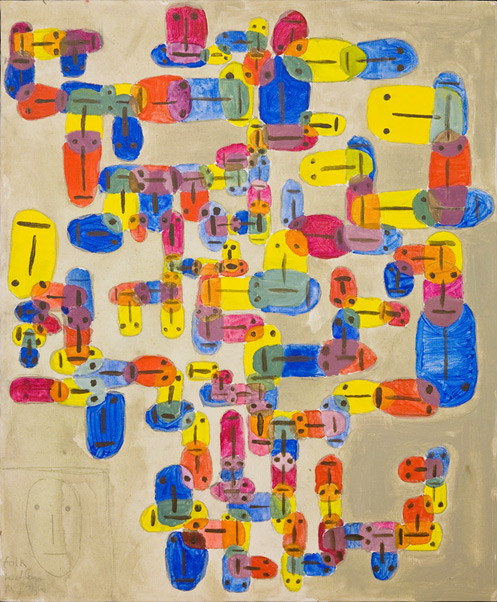
Religious Cultures and Gender Cultures. What is different about gender across religious cultures ?
Avant le 15 octobre - Journal of Contemporary Religion
Journal of Contemporary Religion
Special Issue
In social scientific approaches, religion is predominantly examined as an important source of hegemonic cultural beliefs : religion is conceived as a key factor in shaping gender arrangements and beliefs, for example, religious doctrines that legitimate the unequal treatment of women and the control of women’s sexuality or women’s access to the public domain. This focus dominates particularly the analysis of religions that include a particular body of law, such as halacha in Judaism or shari’a in Islam ; religion is envisioned here as a cultural frame that prefigures the whole conduct and purpose of life as an asymmetric, gendered institution.
While religion is exclusively understood as a kind of cultural factor in these approaches, bound to traditional gender images, often viewed as ‘anti-modern’ and ‘backward’, we introduce religion in this call for papers instead as a variable that is contingent on culture itself. We suggest that religion be understood as a social sphere that mirrors cultural beliefs and (gender) codes like any other social field. In other words, we suppose that religion(s), gender beliefs in religion(s) and the social practices of religious actors vary according to social context, time and place. Consequently, the focus of this call is on the effects of the cultural construction of gender within the religious sphere in different societies and regions at various times—so that the analytical focus is on multiple religious settings, their cultural frames and how they shape gendered action and thinking in the religious field.
Following Ann Swidler’s understanding, we assume culture to be a structured set of symbolic representations and basic codes of meaning that shape social orientation, action and experience. In other words, culture is defined as the publicly available set of symbolic forms through which people express and experience meaning and through which modes of behavior and outlook within a community are shared. This includes the religious field and its various forms of social organization. As a result, religion mirrors the prior symbolic horizon of culture and its institutional crystallization, for example, notions of justice, equality or community. Through this approach, it will be possible to narrow down culture’s causal significance for gender inequality in multiple religious contexts and societies, including the directions into which religious gender relations are shifting in times of transition and crises or as a result of globalization and transnationalization. Besides, it will also be possible to explore religion’s emancipatory potential.
Against this background, we invite colleagues from the sociology of religion and other social sciences to submit abstracts for theoretical and empirically based articles, with individual case studies that focus on the intersection of gender, religion and culture and deal with the question : what is different about gender relations across religious cultures ?
Articles on the following topics are particularly welcome :
![]() the relevance of culture for gender relations and beliefs in varying religious traditions such as Islam, Christianity, Judaism, Buddhism, etc. and against different societal backgrounds (including migrant contexts) ;
the relevance of culture for gender relations and beliefs in varying religious traditions such as Islam, Christianity, Judaism, Buddhism, etc. and against different societal backgrounds (including migrant contexts) ;![]() the way gender cultures and institutions structure beliefs and practices in the religious sphere and its forms of social organization, and the way these are negotiated, debated and re-organized in different cultural contexts, not only in Western-European societies, but also in Asia, Africa, Latin America etc. ;
the way gender cultures and institutions structure beliefs and practices in the religious sphere and its forms of social organization, and the way these are negotiated, debated and re-organized in different cultural contexts, not only in Western-European societies, but also in Asia, Africa, Latin America etc. ;![]() the relevance of cultural constraints in regards to questions of women’s participation and leadership in religion at various societal levels (local, regional, national, transnational, global) ;
the relevance of cultural constraints in regards to questions of women’s participation and leadership in religion at various societal levels (local, regional, national, transnational, global) ;![]() the influence of socio-cultural change on gender relations in the religious sphere within the context of crisis and conflict or against the background of socio-historical, political, economic and other forms of transformation.
the influence of socio-cultural change on gender relations in the religious sphere within the context of crisis and conflict or against the background of socio-historical, political, economic and other forms of transformation.
Instructions to authors and deadlines :
Please submit an outline abstract of about 500 words (plus bibliographical references ; in .doc and .pdf format) by 15 October 2014 to both heidemarie.winkel@uni-potsdam.de and elisabeth.arweck@warwick.ac.uk, outlining the following :
. Title of proposed paper
. Contributing author/s and contact details
. Significance and importance of the research question
. Key concepts, research framework, aim and methodology
If provisionally accepted, full papers are to be submitted by April 2015 for review in line with JCR guidelines. Submission of an abstract does not guarantee publication. Submitted papers will go through the journal’s usual peer-review process. Authors will not receive any payment upon publication.
June , 2014
Fichiers de syndication :
Statistiques :
Le site contient 4383 articles
